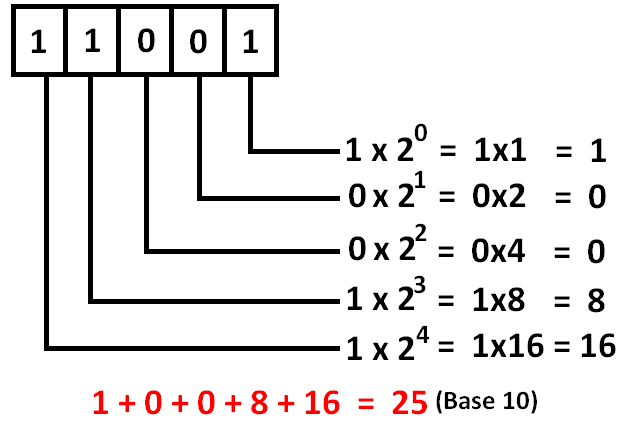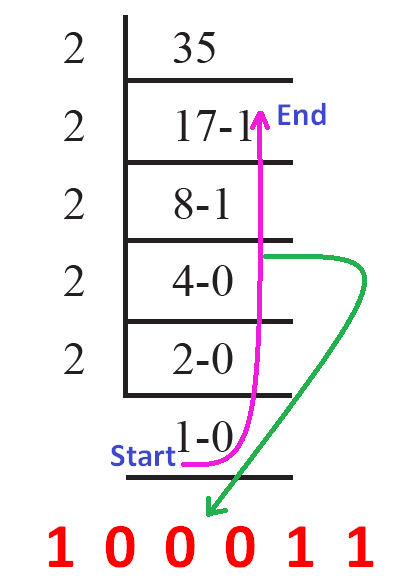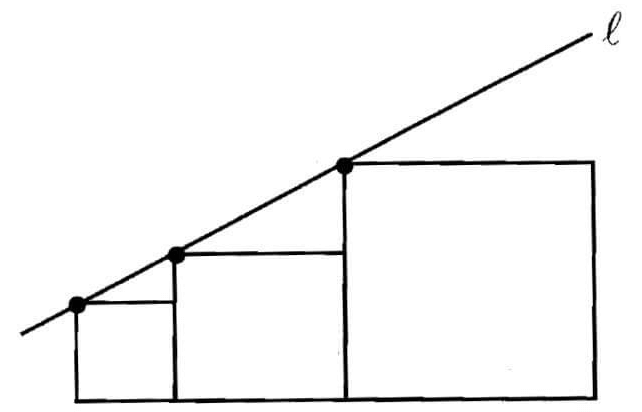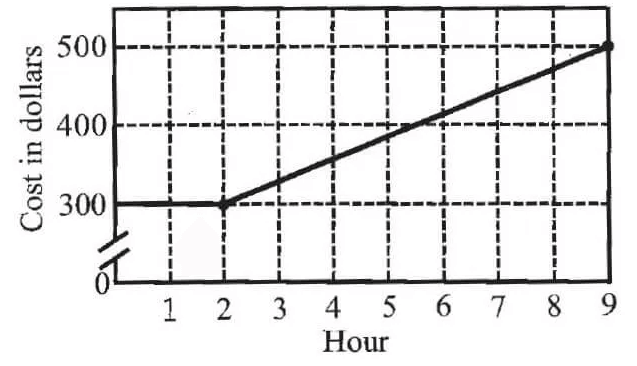BINARY NUMBER SYSTEM
The decimal number system that we used everyday contains ten digits, 0 through 9 and the base of this system is 10.
There is another very important number system known as Binary Number System which contains only two digits, 0 and 1. So the base of binary number system is 2.
To avoid confusion while using different numeral systems, the base of each individual number may be specified by writing it as subscript of the number.
For example, the decimal number 156 will be written as 15610. The binary number 10011100 will be specified as 100111002.
In the binary system, only 2 digits are used, namely 0 and 1. The positional values in a base 2 system are ….,
24, 23, 22, 21, 20
Note : There is no 2 in base 2.
For (1, 10, 11, 100, 101, 110, 111, 1000, 1001, 1010, 1011, 1111, …..)
For example, the number 10011 (base 2) means :
= 1 x 24 + 0 x 23 + 0 x 22 + 1 x 21 + 1 x 20
= 16 + 0 + 0 + 2 + 1
= 19 (base 10)
Binary to Decimal Conversion - Example
A binary number 11001 (base 2) can be converted into decimal number (base 10) using the method explained below.

Therefore, the binary number 11001 (base 2) is equal to the decimal number 25 (base 10)
Decimal to Binary Conversion - Example
A decimal number 35 (base 10) can be converted into binary number (base 2) using the method explained below.
Since the binary number has the base 2, we go on dividing by 2 and get the remainder.

Therefore, the decimal number 35 (base 10) is equal to the binary number 100011 (base 2).
Do you want to check your answer fro the questions like "Decimal to binary" or "Binary to decimal" ?
Please click on the following links to get answer instantly for your questions.
Binary to decimal online converter
Decimal to binary online converter
Application of Binary Number
The Binary Number System plays a central role in how information of all kinds is stored on computers. Almost all packaged goods we buy today are marked with Universal Product Code (UPC).
An Optical scanner ‘reads’ the patterns of black and white, thick and thin and converts it to a binary code that is sent to the scanner’s computer, which then calls up the appropriate product name, price, etc.,.
On a compact disc (CD), music is digitally encoded on the underside of the disc in a binary system of pits and “lands’ (non – pits). If a CD is played, a laser beam traverses along the spiral and is reflected when it hits a land, but it is not reflected by the pits.
It is these changes that return binary date. A change is recorded as a 1, and no change is recorded as a 0. The binary sequence is then converted into music.
Kindly mail your feedback to v4formath@gmail.com
We always appreciate your feedback.
©All rights reserved. onlinemath4all.com
Recent Articles
-
Digital SAT Math Problems and Solutions (Part - 146)
Apr 18, 25 06:52 AM
Digital SAT Math Problems and Solutions (Part - 146) -
Logarithmic Derivative Problems and Solutions
Apr 16, 25 09:25 PM
Logarithmic Derivative Problems and Solutions -
Digital SAT Math Problems and Solutions (Part - 145)
Apr 16, 25 12:35 PM
Digital SAT Math Problems and Solutions (Part - 145)

